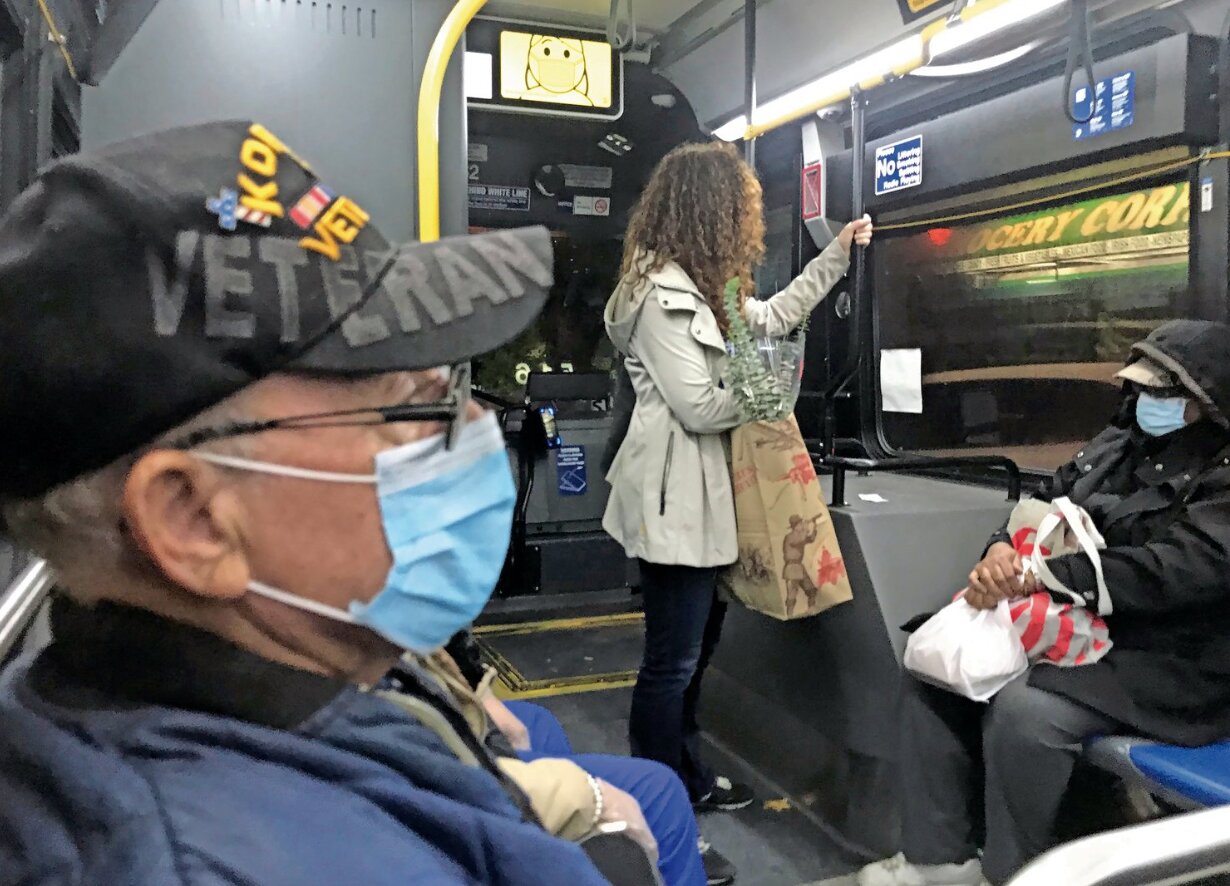New county mask law raises concerns
Nassau County Executive Bruce Blakeman signed the Mask Transparency Act into law on Wednesday, a controversial law that bans the wearing of non-religious and non-health-related face coverings in public spaces.
The law, one of the first of its kind in the state, took effect immediately. It aims to enhance public safety by preventing people from concealing their identities, particularly when they may be committing crimes. But the legislation has sparked significant debate and concern among residents.
Blakeman said the law provides police with another resource allowing them to make a decision to gauge whether someone is engaged in a legitimate activity or not.
“We do not want to abridge anybody’s right to free speech and protest, that is a part of the fabric of our nation, and we wouldn’t want to change that,” Blakeman said after signing the bill into law Wednesday morning. “But when people take liberties that hurt other people’s rights and abridge their constitutional rights and threaten them with violence those are situations that we can not tolerable and they’re not consistent with the United States constitution.”
The Mask Transparency Act has reignited the debate over the balance between public safety and individual rights, a contentious issue that arose during the coronavirus pandemic. Proponents of the law argue that it will help reduce crime by making it harder for people to hide their identities, while opponents fear it could lead to unwarranted stops and arrests.
The bill passed along party lines, with all 12 Republican members of the County Legislature in favor and the seven Democratic legislators abstaining. Democrats voiced concerns that the bill’s language was too vague and could lead to a flood of civil liberties lawsuits. They also warned that the law could face significant legal challenges in court.
Legislator Mazi Melesa Pilip, the bill’s lead sponsor and an Israeli immigrant with a military background, defended the legislation as a necessary tool to combat rising antisemitism and other hate crimes. She cited recent incidents in which masked individuals took part in illegal activities, such as anti-war protests on college campuses that turned violent using face coverings to obscure their identities and evade prosecution.
“This legislation was written for one single purpose: to keep our residents safe,” Pilip, a Republican and a former Israeli paratrooper, said in remarks during a hearing in the Legislature on Aug. 5.
Members of the Democratic minority, who voted against the bill, filed “emergency” legislation that would have stiffened penalties for criminals who use face coverings during crimes. But GOP lawmakers objected to the proposal.
Critics of the law argue that it is overly broad, and could target people who are not engaging in criminal behavior. Deborah Gordon, a resident of Glen Head, expressed her concerns about the potential for racial profiling.
“How will they know if someone is wearing a mask for health reasons?” Gordon said. “There are laws like HIPAA in place for a reason. What about the people without health insurance still wanting to protect themselves from germs or the rise in Covid numbers again? I think Nassau County better get ready for more lawsuits with the laws Bruce Blakeman is backing up.”
Gordon went on to say that she would continue to wear a mask when she feels that it’s necessary for her, no matter what the law is.
Lawmakers also rejected a Democratic proposal to make masks illegal only when concealing one’s identity while committing a crime.
Democrats said they wanted a version of the law that protects individual liberty. Legislator Delia DeRiggi-Whitton, the minority leader, said that both political parties agree that no one should feel threatened in the county. After reviewing the legislation with attorneys, however, she said she found that, as written, it is “not legal.” Specifically, it classifies wearing a mask as a misdemeanor offense, which can carry up to a year in jail and a $1,000 fine. DeRiggi-Whitton pointed out that in criminal law, intent alone does not justify an arrest; there must be an actual criminal act.
She added that Democrats tried to meet with Blakeman to discuss the matter further, but were unsuccessful.
One particularly contentious provision makes it illegal to wear a mask on private property without permission from the property owner or tenant. DeRiggi-Whitton said she was worried about those wearing masks in supermarkets, which are private property, which raises the possibility that customers might be harassed, and asked why they are wearing a mask.
“The Fifth Amendment precludes anyone from asking why you’re wearing something,” she said. “So, technically, unless you’re committing a crime, a police officer should really not ask you why you’re wearing a mask.”






